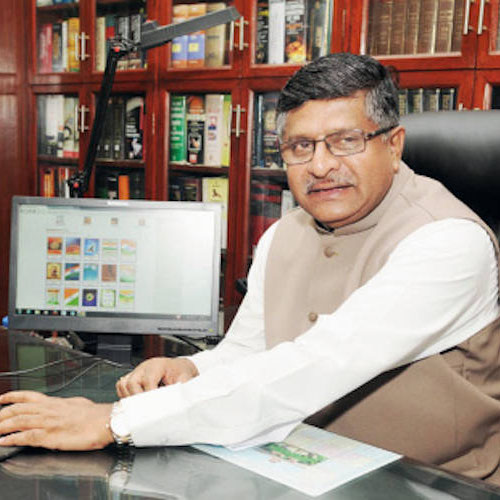WhatsApp has over 450 million users here and it would require a huge change in its mammoth end-to-end encryption system, which makes it what it is, a popular global platform
But, then, there are those who would vouch for the fact that crossing the limits is no longer an exception for social media outfits. “Let us be honest. They have not been disciplined in the past in any way, when it comes to content disbursement. They have grown phenomenally in India, which has become a leading hub for them.
What is wrong if the government of the day seeks some information on content, which it feels is against the interests of the country?” asks Ashwani Mahajan, national co-convenor, Swadeshi Jagran Manch, while adding that “it’s a matter of further probe to see whether they are using the data of Indian users they have gathered, while significantly expanding their subscribers’ fold in recent years”.
Even within the legal fraternity, there are voices, which echo that the government’s proposals are not as stringent as they are made out to be. “I would say it’s a balanced set of laws,” observes Prashant Phillips, partner, Lakshmikumaran & Sridharan, Attorneys. “Legally, there are provisions in the new laws to safeguard the interest of social media platforms as well. They will only be questioned for certain specific kind of content and not for everything. By doing so, India may have become one of the first countries to bring a comprehensive law of this kind. But similar moves, though not of this scale, are also being noticed in some other countries.”
Possible scenario
As expected, the social media giants have the unconditional support of opposition parties and the pro-liberal voices active on social media. And, on 25 May, just a day prior to the new rule coming into the effect, WhatsApp stunned many by moving the Delhi Hight Court, saying that the new rule works against the spirit of the people’s right to privacy. “Requiring messaging apps to ‘trace’ chats is the equivalent to asking us to keep a fingerprint of every single message sent on WhatsApp, which would break end-to-end encryption and fundamentally undermines the people’s right to privacy,” a WhatsApp spokesperson said. “They are well within their rights to do something of this kind. But, yes, even if you are a global giant, you usually avoid getting into a direct tiff with the government of the day in a large country like India, which is one of your base pillars globally. That’s the conventional wisdom,” Pathak says.
Meanwhile, Twitter, on its part, has also issued a strong statement, indicating that it is not willing to take all this lying low. Asserting that the new laws inhibit free, open public conversation, in a statement it expressed concerns about the safety of its employees in India and ‘the potential threat to freedom of expression for the people we serve’.
-
They are well within their rights to do something of this kind. But, yes, even if you are a global giant, you usually avoid getting into a direct tiff with the government of the day in a large country like India, which is one of your base pillars globally. That’s the conventional wisdom
The platform, however, immediately received a message from the Union IT ministry, which made no bones in expressing its displeasure. “Twitter needs to stop beating around the bush and comply with the laws of the land. Law-making and policy formulations is the sole prerogative of the sovereign and Twitter is just a social media platform; it has no locus standi in dictating what India’s legal policy framework should be,” the ministry spokesperson said, in a release. Later, in an interview with a national daily, Union IT Minister Ravi Shankar Prasad asserted that the government’s “commitment to privacy is unimpeachable”.
However, even as most of the major platforms have set afoot the basis compliance steps (though after the expiry of the deadline), analysts believe this should not be seen as the end of the story. “I think, after sending the basic details they have tried to dispel that impression that they follow their own rules irrespective of the countries they operate in. But, they will definitely adopt a wait-and-watch policy. It would be interesting to see how the case, which WhatsApp has filed, unfolds in the Delhi High Court,” Pathak points out.
According to Phillips, there is enough room for further engagement between the two sides. “They can still look at finding a common middle ground,” says he. “Social media platforms can still present their genuine concerns to the government.” Meanwhile, on the technical side, analysts do agree that provisions like finding the first originator of a contentious message would entail a massive overhaul of the backend architecture.
“WhatsApp has over 450 million users here and it would require a huge change in its mammoth end-to-end encryption system, which makes it what it is, a popular global platform. It can’t be done in three months. Secondly, it would not like to do it, as that would take away its USP,” says the Chief Technology Officer of a leading consumer firm. Quite clearly, the issue may well be far from over.
-

Twitter makes headlines, for some wrong reasons too
Facing heat elsewhere
Governments across the globe may adopt a stringent approach in dealing with social media
Considering the mounting criticism on a host of issues since last year on social media, many would feel that the Modi government may have rushed into initiating new IT laws meant to control them effectively. But even as Indian government’s response may appear to be too pro-active on this front, the country is certainly not alone in taking steps to set rules and boundaries for the internet giants, mostly based in the US. While China is the extreme case, where it has not allowed the West headquartered firms to take roots in its territory (instead, it has encouraged home-grown platforms, which are strictly monitored and controlled), some other big countries too have made it clear that they would not allow these platforms to play by the rules that work in their interest.
Take the case of Russia. In the recent months, leading internet firms have been fined on several occasions for their failure to remove content, which authorities in Moscow deemed illegal. On 25 May, Facebook was fined 26 million rubles by Moscow’s Tagansky District Court for a series of such offenses. Google too was at the receiving end of a similar verdict, issued by the same court, amounting 2 million rubles. Additionally, Russian communication watchdog Roskomnadzor also warned the company of slowing down its internet traffic in the country, if it does not delete a specific content.
According to a media report, the regulator has already slowed the traffic of Twitter following its failure to remove a content banned by the Russian government. Early this year, while addressing the World Economic Forum (WEF) via video conferencing, the tough talking President of Russia, Vladimir Putin had made his mind clear in no uncertain terms. “We are now talking about economic giants, aren’t we? In certain areas, they are competing with states and their audience can include millions and millions of users... Here is the question, how well does this monopolism correlate with the public interest?” he had asked.
Australia is another noted global spot, where the current dispensation has taken the fight against social media platforms quite seriously and seems to be committed to take the battle to its logical end, which may have global implications. The new law, News Media & Digital Platforms Mandatory Bargaining Code Bill 2021, has provisioned for Google and Facebook paying local media companies for using their content. “They may be changing the world, but that doesn’t mean they should run it,” Prime Minister Scott Morrison had earlier commented. Many believe that this can well become an example for other countries in the coming years, which will limit the powers of social media entities. Germany already has tougher laws on any kind of misconduct vis-a-vis online speech.
In fact, preliminary steps to check social media platform functioning are well visible in many other countries, mostly limiting to ‘expeditious removal of pointed content by the government or face serious fines’. But, as social media platforms have gathered more subscribers and users in their fold in recent years, the perception about their possible misuse and serious social and political repercussions has also become stronger. The riot witnessed at the US Capitol early this January has particularly been attributed to a deluge of mis-information on social media. And, such instances, many analysts believe, may well become the reason for governments across the globe adopting a more stringent approach in dealing with social media.





































